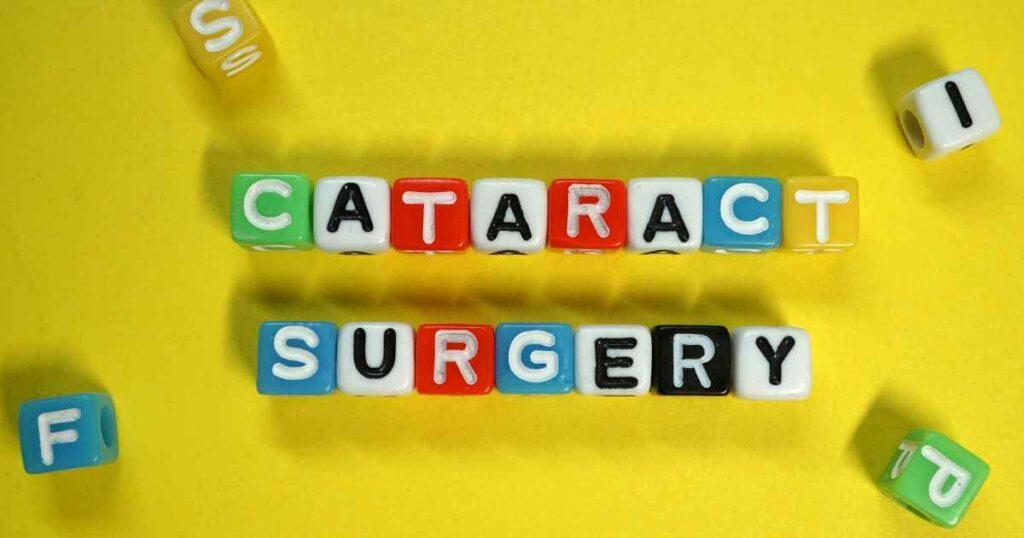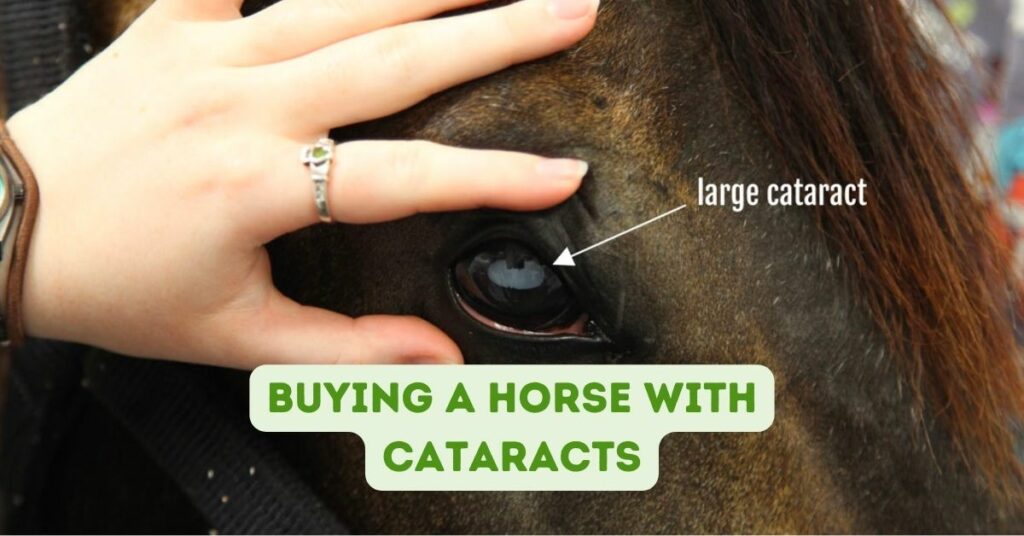As an Amazon Associate we earn from qualifying purchases.
Are you considering buying a horse with cataracts? It can be a difficult decision, but with the right information and care, a horse with cataracts can still lead a full and active life. In this article, we will provide you with everything you need to know about buying a horse with cataracts, including costs, treatments, and potential risks. We will also discuss how to find a reputable breeder and the commitment involved with owning a horse with cataracts. By the end, you’ll have the knowledge to make an informed and confident decision.
Things To Consider Before Buying A Horse With Cataracts
Buying a horse with cataracts can be a difficult decision. Horses with cataracts can still lead a full and active life, but it’s important to be aware of the risks and rewards of owning a horse with this condition. Here are some things to consider before making the purchase.
Vet Bills
The first thing to consider is the cost. Cataracts can be expensive to treat, so it’s important to understand what you’re getting into before making a purchase. Talk to your vet about the treatments available and their associated costs.
Horse Cataracts Surgery Cost

Horse cataracts surgery can be a costly procedure and the cost will vary depending on the severity of the cataracts and the horse’s individual needs. Generally, the cost of cataracts surgery for a horse can range from $2,000 to $5,000, with some cases costing even more depending on the complexity of the surgery.
Many horse owners opt for cataract surgery in order to restore the horse’s vision and improve its quality of life. In addition to the cost of the surgery itself, there may be additional costs such as pre-surgical tests, anesthesia, and post-operative care. It is important for horse owners to be aware of the potential costs associated with cataract surgery before deciding on buying a horse with cataracts.
Understand Cataracts
It’s also important to understand the condition and how it affects the horse. Cataracts will cause vision loss, but the degree of vision loss can vary. Talk to your vet about the severity of the cataracts and how it will affect the horse’s ability to perform certain activities.
For more detailed information on Cataracts in horses follow this link.
Horse’s Overall Health
Before making a purchase, it’s also important to consider the horse’s overall health. Horses with cataracts may be more prone to certain health issues, such as eye infections or muscular-skeletal problems. Make sure to get a full veterinary checkup before committing to the purchase.
SEE ALSO : Horse Belly Slapping – What Does It Mean?
Purchase From Reputable Breeder
When purchasing a horse with cataracts, it’s important to find a reputable breeder. Ask questions about the horse’s medical history and be sure to get a written contract that outlines the terms of the purchase.
Understand The Commitment
Finally, it’s important to recognize that owning a horse with cataracts is a commitment. Horses with vision loss need extra care and attention. Make sure you’re prepared to provide the horse with the necessary care before making the purchase.
What Are Cataracts In Horses?
Cataracts in horses are an opaque area in the lens of the eye which causes the eye to lose its normal, clear vision. Cataracts can occur in horses of any age, but are most common in older horses. Cataracts can either be congenital (present from birth) or acquired (developing later in life).
Cataracts can range in severity, from mild to severe. Mild cataracts may not cause any vision problems, while severe cataracts can cause complete blindness in the affected eye. Signs of cataracts in horses can include cloudy or hazy vision, squinting, or an inability to focus.
What Causes Cataracts In Horses?
Cataracts in horses can be caused by a variety of factors, the most common being an inherited condition. This is when the lens of the horse’s eye contains abnormal proteins that cause the lens to become opaque. Other causes of cataracts in horses include trauma, infection, inflammation, nutritional deficiencies, and advanced age. In some cases, cataracts can also be caused by a build-up of toxins within the eye, which can be a result of prolonged exposure to certain medications. Cataracts can also be caused by prolonged exposure to sunlight. Therefore, it is important to protect your horse’s eyes from the sun with sunglasses or protective blankets.
Can You Ride A Horse With Cataracts
Riding a horse with cataracts is possible, but it is important to be aware of the risks involved. A horse with cataracts may have decreased vision, making it more difficult for the rider to direct the horse and for the horse to respond to commands. It is important to take it slow and be aware of the horse’s surroundings. Keep the horse on a loose rein and encourage the horse to move slowly and cautiously. Communication between the horse and rider is key, and it is important to be aware of the horse’s body language. With the right guidance and patience, a horse with cataracts can be ridden with care.
Buying A Horse With Cataracts – Final Thoughts
When buying a horse with cataracts, it is important to consider the horse’s lifestyle, health, and temperament. A horse with cataracts may be more prone to accidents and falls, so it is important to ensure that the horse is healthy and has the proper equipment. Additionally, the horse should have a good relationship with its handler and be comfortable around humans. If a horse with cataracts is purchased, it is important to provide the necessary care and patience to ensure the horse’s well-being. With the right support, a horse with cataracts can be a great addition to any family.
Amazon and the Amazon logo are trademarks of Amazon.com, Inc, or its affiliates.

Hey there, I’m Jasmine! I’m a total horse fanatic and have been working with these amazing animals for as long as I can remember. I’m passionate about sharing my love for horses with others and helping them learn more about these majestic creatures. As a professional horse trainer and riding instructor, I’ve developed a deep understanding of equine science and am committed to the welfare of horses. That’s why I founded OwnTheHorse.com, a blog where I share my knowledge and insights with fellow horse enthusiasts. I love connecting with my readers and building a friendly community of horse lovers. Whether you’re a seasoned equestrian or just starting out, I’m here to help and inspire you. Above all, I’m a friendly and compassionate person who truly cares about the well-being of horses and their human companions.

